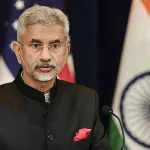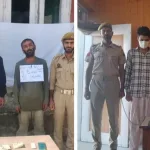To mark this year’s World Birth Defects Day, World Health Organisation (WHO) is highlighting the urgent need for countries in the South-East Asia Region and globally to strengthen health systems to prevent, detect, and manage and care for birth defects, which are structural or functional anomalies that occur during intrauterine life, Dr Poonam Khetrapal Singh, WHO Regional Director for South-East Asia, said.
“Globally, an estimated 8 million newborns are born with a birth defect every year. Nine out of every ten children born with a serious birth defect are in low- and middle-income countries. The most common severe birth defects are heart defects, neural tube defects and Down syndrome, but there are many others, which can be caused by one or more genetic, infectious, nutritional or environmental factors,” Dr Poonam Khetrapal Singh said. “In the WHO South-East Asia Region, birth defects are the third most common cause of child mortality, and the fourth most common cause of neonatal mortality, accounting for 12% of all neonatal deaths. Between 2010 and 2019, birth defects increased as a proportion of child mortality in the Region, from 6.2% to 9.2%, and in four countries, birth defects now contribute to more than 20% of under-five mortality. In 2019, birth defects contributed to at least 117 000 deaths in the Region, equal to around 22% of the global total,” Dr Poonam pointed out.
Since 2014, Dr Poonam said, WHO has supported all countries of the Region to drive rapid, sustained reductions in maternal, newborn and child mortality, which has included targeted action to prevent, detect, manage and care for birth defects.
She said that all Member States have initiated hospital-based birth defect surveillance and are implementing national action plans to prevent and manage birth defects.
“Six Member States – Bangladesh, Bhutan, India, Maldives, Myanmar and Nepal – continue to support a WHO-developed online database to better track birth defects. To date, the database has recorded more than 4.7 million births in the Region, including about 51 000 infants born with birth defects. All countries have initiated routine rubella vaccination for girls, achieving an average coverage rate of 83%. Maldives and Sri Lanka have eliminated rubella, and Bangladesh, Bhutan, Nepal and Timor-Leste have controlled congenital rubella syndrome,” said Dr Singh.
“All Member States continue to implement folic acid supplementation, and several have fortified foods such as wheat flour with folic acid, vitamin B-12 and iron. Across the Region, pregnant women continue to be counselled to avoid potentially harmful medications, X-rays, tobacco products, alcohol and drugs,” Dr Singh said while adding that in most countries, basic services for birth defect care and management are available, however, access to advanced treatments, rehabilitation and support for affected babies and families remain inadequate, as is access to genetic and metabolic screening.
“To urgently strengthen health systems to prevent, detect, treat, care for and manage birth defects, the Region has several priorities. First, improving the coverage and quality of preventive interventions such as rubella immunization, quality antenatal care and folic acid- and B12-fortified foods. Increased leadership is especially needed from ministries of health to fully implement and monitor food fortification programmes, which should be aligned with WHO standards,” she said.
“Second, enhancing health system capacities to detect, treat and care for birth defects, with a focus on adapting new WHO guidance on universal screening of newborns for hearing impairment and eye abnormalities. For this, countries should integrate a series of simple bedside tests into existing postnatal health care services, which must be supported by effective systems for referral, diagnosis, management and follow-up,” she said.
“Third, sustaining and expanding surveillance and improving data systems, with a focus on strengthening not just coverage and quality, but analysis and application. Data that are of adequate quality, and which are regularly analyzed, must actively inform advocacy for resource mobilization, and also support ongoing capacity building and programme monitoring,” she said.
“Fourth, increasing support for parents and caregivers for early childhood development and to improve disability care. For this, health facilities should better connect with community-based networks, platforms and organizations, which should, in turn, empower affected families to access services and support, including social protection,” she explained.
Dr Poonam said that every child has the right to survive and thrive, with full access to quality and comprehensive health and social services.
“On World Birth Defects Day, WHO reaffirms its commitment to support all countries of the Region to urgently strengthen health systems to prevent, detect, manage and care for birth defects, for every child, everywhere,” she said. (ANI)





